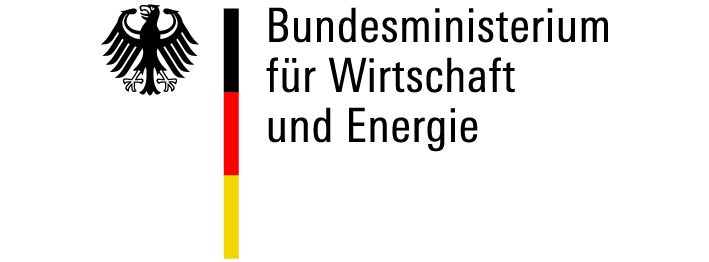The project
The aim of the project is to develop a new process for making films anti-reflective. A plasma-etching process, which up until now has been utilized for small and compact optical parts, will be further developed for modifying film surfaces.
A key aim is to realize this process in a continuously operating plant (roll-coater).
The project work involves:
- the testing and evaluation of plasma and ion sources that can guarantee effective etching on defined films;
- the determination of parameters for generating anti-reflective structures on PET film, TAC film, and three further film materials by optimizing initial layers (layer material and thickness) and etching parameters;
- the construction and testing of a roll-coater with a plasma source or ion source, with the aim of generating the structures in a continuous process;
- the manufacture and testing of prototypes.
Plastic films are nowadays produced in enormous quantities. The biggest user is the food packaging industry. In addition there is a very wide range of applications in high-tech products. These products and applications include packaging, protective encapsulation of medicines and electronic goods, decorative elements, and also the realization of complex functions in displays and solar cells. The increasing use of all types of mobile electronic devices has in particular seen the last-mentioned applications grow in importance.
In most cases the optical properties of the films must be customized for particular applications. Films that are anti-reflective are in demand. Due to the different refractive indices of plastics and air, light is partly reflected on the front and rear sides and this is even so for transparent films. For widely-used PET the reflection is about 12 percent, and this value is higher than for glass.
Polymer films with anti-reflective properties can be used in all situations where large areas need to be made anti-reflective at favorable cost. Typical fields of application include glazing for display cabinets and shop windows, large optical elements for projection equipment, and car parts. Anti-reflective and anti-fog surfaces are also of interest for, for example, sports glasses, windscreens, and displays.
Decisive for commercial use, particularly for medium-sized companies, is the availability of reasonably priced anti-reflective films. The project is tackling this issue in two ways. Firstly, the plasma-etching process has the potential for producing good quality products at low production cost. Secondly, the work is focusing on realizing a roll-to-roll coating plant. This type of machinery is ideal from a logistics standpoint and can be universally used for different roll products. At the same time, the continuous operation and simultaneous running of all necessary processes also offer the potential for favorable-cost production.
 Fraunhofer Institute for Electron Beam
Fraunhofer Institute for Electron Beam